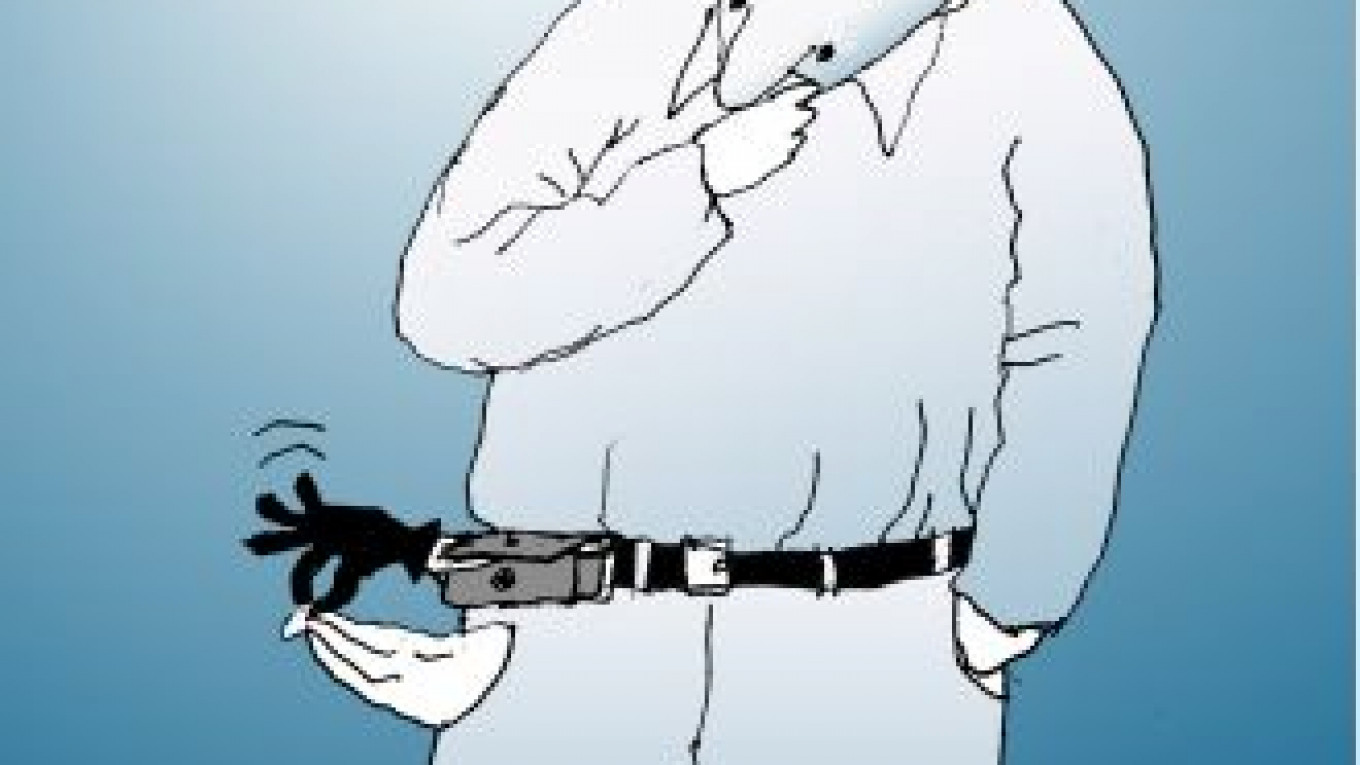Ostorozhno, moshenniki!” is the cry that comes shouting in the inbox. “Beware, con artists!” is a good enough translation, but it sounds a bit old-fashioned, as if someone was warning you off from a game of three-card Monte or buying shares in the South Sea Company.
None of these are the Ostap Benders of the 21st century — almost lovable rogues who con the greedy and the rich — but the cunning and persistent, ever eager to prey on gullibility, greed and the wallets of the more honest.
There have been two warnings sent around the office recently of telephone con artists who send an SMS where they pretend to be your bank.
Beeline has a very good site — Safe.beeline.ru — that lists the different types of telephone cons, 20 at last count.
There are the fake relatives who ring up or send an SMS to say they were in an accident and need money on the phone. This con can go long, as they get the sucker on the end of the line to not only put money on a phone for the relative but to pay off the fictional police so as to stop the relative from being arrested.
Other cons can be worked out by the names: “the virus,” “false work,” “false prizes,” “give some money to charity” and my favorite madeup one — “Putin 2012-2024.”
The Beeline site is only in Russian so if you see an English version, you are probably looking at con No. 21.
Russian Twitter users recently had a craze of responding to those “Mum, I need help” texts with less-than-familial terms where they disown the lost sons and daughters. Be warned — this may take 600 rubles ($20) from your account.
Another defense, popular among those for whom the betrayal is more personal, is to stick something on the internet as a warning to others.
One site — Moshennik.name — does just that.
A woman writes of Olaf who woos and seduces women and then gets them to sell their flat to live the dream life in Germany before running off. She writes that he’s a pervert, his Mercedes is 11 years old, and his flat is, in fact, crap.
Another tells of his friend Vladimir and how they planned to go to Germany together to work in the early 1990s. Vladimir said he would sort out all the documents and took his passport and money.
Everything was agreed, and on the day they were set to leave, he found out that Vladimir had immigrated to Israel with all his money.
Money he had borrowed from the local mafia.
“I did not give the money to the bandits on time. … Volodya knew what would happen,” wrote the man.
Beware, con artists!
A Message from The Moscow Times:
Dear readers,
We are facing unprecedented challenges. Russia's Prosecutor General's Office has designated The Moscow Times as an "undesirable" organization, criminalizing our work and putting our staff at risk of prosecution. This follows our earlier unjust labeling as a "foreign agent."
These actions are direct attempts to silence independent journalism in Russia. The authorities claim our work "discredits the decisions of the Russian leadership." We see things differently: we strive to provide accurate, unbiased reporting on Russia.
We, the journalists of The Moscow Times, refuse to be silenced. But to continue our work, we need your help.
Your support, no matter how small, makes a world of difference. If you can, please support us monthly starting from just $2. It's quick to set up, and every contribution makes a significant impact.
By supporting The Moscow Times, you're defending open, independent journalism in the face of repression. Thank you for standing with us.
Remind me later.






